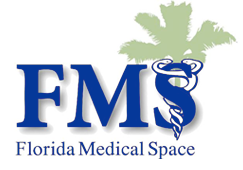

Florida regulators have approved plans for three new hospitals in Lee and Collier counties, a decision that reverses the state’s view four years ago that no new health centers were needed in the region.
This means that Lee Health may proceed with plans to build an 82-bed hospital on a medical campus it is already building in Estero.
But it also means that HCA Healthcare, which left Southwest Florida more than a decade ago, may open its own 80-bed hospital and inpatient psychiatric facility near Corkscrew Road and U.S. 41 in that same community. The hospital also would become Lee County’s third receiving facility for people undergoing involuntary mental health evaluations under the state’s Baker Act.
The Florida Agency for Health Care Administration’s ruling on Friday said that both hospitals are needed to meet the needs of a rapidly growing county and to diversify its health care offerings:
“The Agency finds that approval of both applicants, collectively, will increase accessibility and availability of inpatient services while enhancing health care and fostering competition to promote quality and cost effectiveness to residents of the subdistrict.”
A third approved plan from Braden Clinic in Ave Maria calls for the construction of a 25-bed health center in that community.
NCH Healthcare System, which operates the largest hospitals in Collier County and competes with Lee Health for patients in south Lee County, had opposed all three bids.
None of the hospital systems had commented on the decision as of Friday morning.
The Players
The 102-year-old Lee Health, formerly known as Lee Memorial Health System, is a public hospital system governed by an elected 10-person governing board. It operates four acute-care hospitals in Lee County and a variety of specialty clinics and health centers, including The Golisano Children’s Hospital of Southwest Florida.
Lee Health also operates the only trauma center between Sarasota and Miami.
It frequently faces criticism for being a “monopoly” because it operates roughly 95 percent of the adult acute-care hospital beds in Lee County. For now, its only competitor is the 88-bed Lehigh Regional Medical Center in Lehigh Acres.
Nashville-based HCA Healthcare is the nation’s largest hospital operator with 179 hospitals, 120 freestanding surgery centers and a number of medical facilities in 20 states and the United Kingdom.
Its Florida holdings include Fawcett Memorial Hospital in Port Charlotte, Englewood Community Hospital and Doctors Hospital of Sarasota.
Gov. Rick Scott led what was then known as Columbia/HCA between 1987 and 1997. He left amid a federal investigation into its Medicare billing practices, which ultimately forced the company to pay $1.7 billion in penalties and fines between 2000 and 2002.
At the time, it was the largest health care fraud in the nation’s history, according to Politifact.
HCA formerly operated the now-demolished Southwest Florida Regional Medical Center and what was once known as Gulf Coast Hospital. Lee Health acquired both in 2006 in a $535 million deal.
Braden Clinic has been in Ave Maria for several years and provides a number of outpatient medical services, including primary medical care, urgent care and pediatric care. It also offers lab services.
Its hospital would serve Ave Maria, Immokalee and the surrounding rural communities, according to its website. It is expected to offer 24/7 emergency services, a pharmacy, a lab, rehabilitation care, imaging, an infusion center and cardiorespiratory.
Source: Naples Daily News

Florida ranks No. 48 in a new ranking of state health care systems (and the District of Columbia) published by The Commonwealth Fund, a private foundation that works to achieve better better health care access for low-income Americans, the uninsured, minorities, young children and elderly adults.
Overall, the state’s health care system worsened since last year’s ranking. Deaths from suicide, alcohol and drug use increased during the period studied, according to the report, which contributed to the drop in ranking. The portion of people 64 and younger without insurance, meanwhile, improved.
Source: Sarasota Magazine
